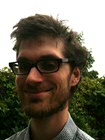Nine Vidi grants for top researchers from the University of Groningen and UMCG
The Netherlands Organisation for Scientific Research (NWO) has awarded Vidi grants to seven researchers from the University of Groningen and the University Medical Center Groningen. The grants, which are worth a maximum of €800,000, enable researchers to develop their own research lines and set up their own research teams.
Vidi is aimed at excellent researchers with several years of successful research experience after gaining a PhD. These researchers are among the best ten to twenty percent in their field. A Vidi grant enables the recipient to conduct research for five years. NWO selects Vidi laureates on the basis of the qualities of the researcher, the innovative character of the research, the expected academic impact of the research proposal and the potential benefits to the body of knowledge. In this round, 87 of the 572 applications were honoured nationwide.
University of Groningen and UMCG projects awarded a Vidi grant
Dr. Katalin Barta:
Lignin waste to valuable chemicals
Lignin is the largest renewable source of aromatics on the planet. Still, its chemical conversion is a real challenge. This research will find ways to break down the robust structure of lignin and convert this aromatic biopolymer into valuable chemicals.
Recent video on Barta's research Sustainable alternative to fossil fuels and chemicals in the making
Dr. Arnold Boersma: How full is a cell?
We don’t know how full cells are, even though this parameter affects several processes and may be the initial cause of diseases. The researchers will map the molecular pressure inside the cell.

Dr. Martin Witte:
Molecular tools for phospholipases
Enzymes that model the phospholipid cell membrane play an important role in the transmission of signals and the formation of organelles. The research will focus on developing molecular tools to study these processes.

Dr. Emar Maier:
The language of storytelling and imagination
A newspaper reads differently from a novel; in a newspaper article we expect realistic statements about real people, whereas we all know the wizards in Harry Potter do not exist. In this project, philosophers and linguists will develop a theory to explain the fundamental difference between the language of stories and that of daily life.
Prof. Floor Rink:
The scrutiny of top administrators: internal or external?
These days, the decision making of top administrators is under close scrutiny. Often, however, this scrutiny does not produce the desired results, raising the question of who is most influential with administrators: internal or external supervisors.
Recent video on Rink's research: Diversity within organizations
Dr. Susanne Scheibe:
Getting better with age?
Increasingly, people need to work longer. How well are they prepared to meet this challenge? In this project scientists will explore how emotional changes with age shape, and are shaped by, work experiences, and whether older workers have emotional strengths that help them be effective at work.
Prof. dr. Sarthak Misra:
SAMURAI (Steering Actuated Probes for Targeted Interventions)
Probes are often used in diagnostics and for the delivery of medicines. Often, these generally inflexible instruments miss their target, resulting in complications.
SAMURAI will develop flexible, robot-controlled probes to reach difficult locations in the body, thus enhancing both patient comfort and clinical results.
For more information visit: www.surgicalroboticslab.nl

Dr. Guido Krenning:
:
Identity crisis in a failing heart
Heart failure is caused by the scarring of the heart. Cells from the heart’s blood vessels contribute to this process of scarring by undergoing an ‘identity change’. The researchers in this project have discovered a protein that decelerates this identity change of the blood vessels and will examine whether the activation of this protein may avert heart failure.

Dr. Morris Swertz:
Scalable ‘big data’ methods towards personalized genome diagnostics
New NGS techniques allow for the simultaneous measurement of all DNA variations. Unfortunately, diagnostics lags behind as gene labs are flooded with data. Previously, only one gene was tested at a time. This project will develop patient-oriented techniques for faster and better localization of harmful mutations to be used in personalized whole-genome diagnostics.
More news
-
26 February 2026
Vici grant for Professor of Neurology Marieke Wermer
-
17 February 2026
From Ghostbuster to Disaster Researcher
-
17 February 2026
The long search for new physics
